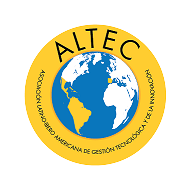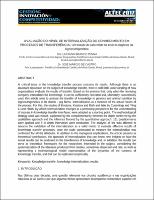Avaliação do nível de internalização do conhecimento em processos de transferência: um estudo de caso misto na rede de negócios da Agronutrigenética
Abstract
A critical issue in the knowledge transfer process concerns its results. Although there is an
abundant discussion on the subject of knowledge transfer, there is still little understanding of how
organizations evaluate the results of transfer. Based on the premise that, only when the receiving
company internalizes the knowledge, it can be sufficiently recreated and, ultimately, successfully
used, this article aims to analyze the transfer of knowledge in genetics and animal nutrition by
Agronutrigenética to its clients - pig farms. Internalization as a measure of the actual results of
the process. For this, the studies of Kostova, Kostova and Roth and later by Cummings and Ying
Li and Hsieh, by which internalization emerges as a promising perspective for the understanding
of success in knowledge transfer interfaces, were adopted as a starting point. The methodological
strategy used was mixed, supported by the complementarity between the depth conferred by the
qualitative approach and the inference favored by the quantitative approach. 161 questionnaires
were applied and 8 in-depth interviews were conducted. The analysis of the data allowed to
advance the validation of the internalization as a valid metric to evaluate effective results of
knowledge transfer processes, once the scale constructed to measure the internalization was
confirmed for all the attributes. In addition to the managerial implications, the article presents as
theoretical contribution, the approach of internalization that can throw new insights on how the
actual results can be evaluated in the transference of knowledge and, in addition, the results can
serve as theoretical framework for the researchers Interested in the subject, considering the
systematization of the literature produced from studies, sometimes dispersed and rare, as well as
representing a methodological model representative of the dynamics of the contexts of
knowledge transfer, and that can be replicated empirically.


